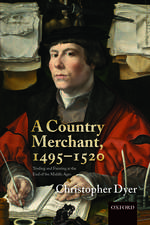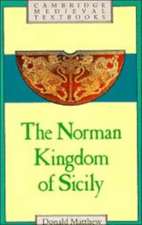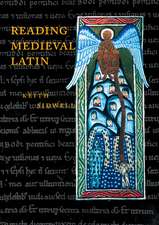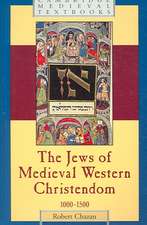The Cambridge Economic History of Modern Europe: Volume 2, 1870 to the Present: The Cambridge Economic History of Modern Europe
Autor Stephen Broadberry, Kevin H. O'Rourkeen Limba Engleză Paperback – 23 iun 2010
| Toate formatele și edițiile | Preț | Express |
|---|---|---|
| Paperback (1) | 278.86 lei 6-8 săpt. | |
| Cambridge University Press – 23 iun 2010 | 278.86 lei 6-8 săpt. | |
| Hardback (1) | 886.53 lei 6-8 săpt. | |
| Cambridge University Press – 23 iun 2010 | 886.53 lei 6-8 săpt. |
Preț: 278.86 lei
Nou
Puncte Express: 418
Preț estimativ în valută:
53.36€ • 55.40$ • 44.50£
53.36€ • 55.40$ • 44.50£
Carte tipărită la comandă
Livrare economică 22 martie-05 aprilie
Preluare comenzi: 021 569.72.76
Specificații
ISBN-13: 9780521708395
ISBN-10: 0521708397
Pagini: 484
Ilustrații: 3 maps 102 tables
Dimensiuni: 173 x 246 x 22 mm
Greutate: 0.94 kg
Editura: Cambridge University Press
Colecția Cambridge University Press
Seria The Cambridge Economic History of Modern Europe
Locul publicării:Cambridge, United Kingdom
ISBN-10: 0521708397
Pagini: 484
Ilustrații: 3 maps 102 tables
Dimensiuni: 173 x 246 x 22 mm
Greutate: 0.94 kg
Editura: Cambridge University Press
Colecția Cambridge University Press
Seria The Cambridge Economic History of Modern Europe
Locul publicării:Cambridge, United Kingdom
Cuprins
Introduction; Part I. Before the First World War: 1. Globalization, 1870–1914 Guillaume Daudin, Matthias Morys and Kevin H. O'Rourke; 2. Aggregate growth, 1870–1914: growing at the production frontier Albert Carreras and Camilla Josephson; 3. Sectoral developments, 1870–1914 Stephen Broadberry, Giovanni Federico and Alexander Klein; 4. Business cycles, 1870–1914 Marc Flandreau, Juan Flores, Clemens Jobst and David Khoudour-Casteras; 5. Population and living standards, 1870–1914 Carol Leonard and Jonas Ljungberg; Part II. The World Wars and the Interwar Period: 6. War and disintegration, 1914–50 Jari Eloranta and Mark Harrison; 7. Business cycles and economic policy, 1914–45 Albrecht Ritschl and Tobias Straumann; 8. Aggregate growth, 1913–50 Joan R. Roses and Nikolaus Wolf; 9. Sectoral developments, 1914–45 Erik Buyst and Piotr Franaszek; 10. Population and living standards, 1914–45 Robert Millward and Joerg Baten; Part III. From the Second World War to the Present: 11. The economic impact of European integration Barry Eichengreen and Andrea Boltho; 12. Aggregate growth, 1950–2005 Nicholas Crafts and Gianni Toniolo; 13. Sectoral developments, 1945–2000 Stefan Houpt, Pedro Lains and Lennart Schön; 14. Business cycles and economic policy, 1945–2007 Stefano Battilossi, James Foreman-Peck and Gerhard Kling; 15. Population and living standards, 1945–2005 Dudley Baines, Neil Cummins and Max-Stephan Schulze.
Recenzii
'This ambitious and timely book is something quite new: a multi-authored undergraduate economic history text that is resolutely pan-European in its approach. The promiscuous presence of so many nation-states in virtually every chapter is very exciting. The outcome - an explicitly comparative and interdisciplinary analysis (with lots of elementary and intermediate economics) by three dozen of the best practitioners in the field - is a resounding success.' Cormac Ó Gráda, University College Dublin
'Earlier economic histories of Europe were organized by country, which left the reader unable to see linkages between national economies or to appreciate how the several national economies differed or were similar. This very fine treatment is thus long overdue. The editors have organized a large, talented team of specialist scholars to create a coherent, up-to-date treatment. This work will quickly find a place in both teaching and research.' Timothy W. Guinnane, Yale University
'The first unified economic history of Modern Europe provides a wide-angle perspective on an epic process of development that transcends national boundaries. Academics, students, policymakers and interested readers will turn to the essays by leading experts in the field for many years to come.' Alan M. Taylor, University of California, Davis
'Earlier economic histories of Europe were organized by country, which left the reader unable to see linkages between national economies or to appreciate how the several national economies differed or were similar. This very fine treatment is thus long overdue. The editors have organized a large, talented team of specialist scholars to create a coherent, up-to-date treatment. This work will quickly find a place in both teaching and research.' Timothy W. Guinnane, Yale University
'The first unified economic history of Modern Europe provides a wide-angle perspective on an epic process of development that transcends national boundaries. Academics, students, policymakers and interested readers will turn to the essays by leading experts in the field for many years to come.' Alan M. Taylor, University of California, Davis
Notă biografică
Descriere
Surveying Europe's economic history since 1870, this textbook sets European economic development within a pan-European framework.
































